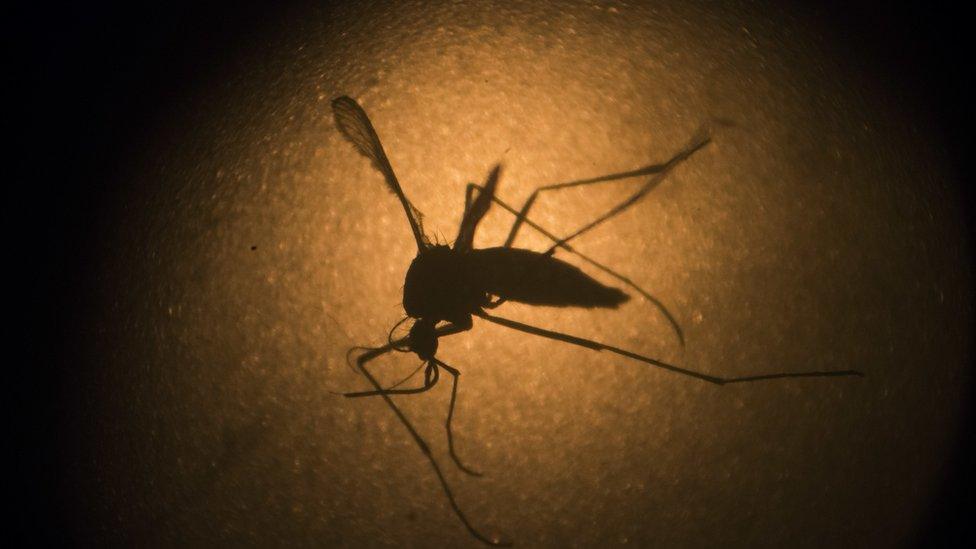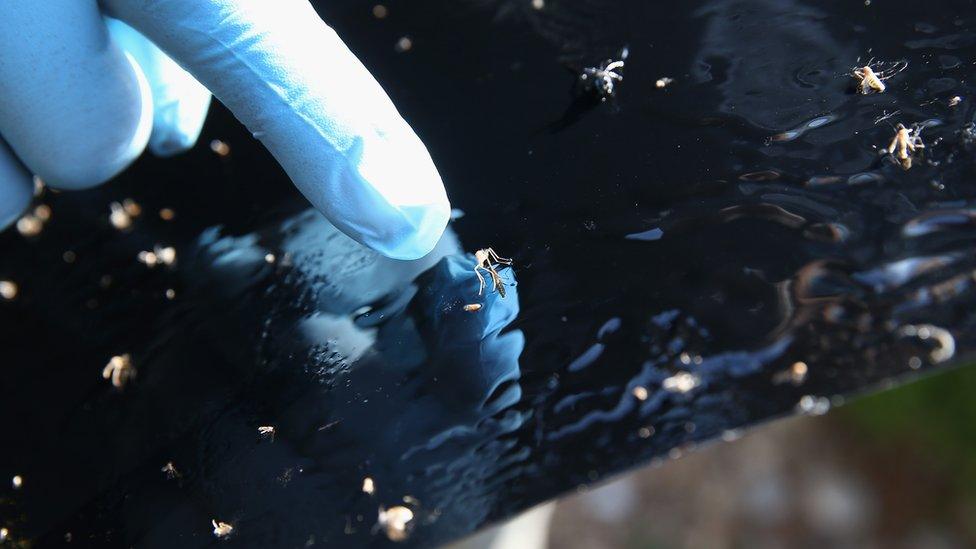Zika outbreak fuelled by mosquito control failure, says WHO boss
- Published

The spread of Zika is the price being paid for a massive policy failure on mosquito control, says World Health Organization leader Margaret Chan.
Speaking at the agency's annual World Health Assembly, Dr Chan said experts had "dropped the ball" in the 1970s with regards to getting a handle on disease-carrying insects.
More than 60 countries and territories now have continuing Zika transmission.
Most recently, the infection, spread by mosquito bites, reached Africa.

Experts predict the same strain could reach Europe in the summer.
The virus is thought to cause serious birth defects during pregnancy and has been declared a global public health emergency.
According to Dr Chan, outbreaks that become emergencies always reveal specific weaknesses in affected countries and illuminate the fault lines in our collective preparedness.

"Zika reveals an extreme consequence of the failure to provide universal access to sexual and family planning services," she said.
Dr Chan added that Latin America and the Caribbean, which have been hit hard by Zika, have the highest proportion of unintended pregnancies in the world.

More on the Zika crisis:

Microcephaly: 'It's not the end of the world' Life for a girl who has the condition
What you need to know Key questions answered about the virus and its spread
Travel advice Countries affected and what you should do
The mosquito behind spread of virus What we know about the insect
Abortion dilemma Laws and practices in Catholic Latin America

Above all, she said the spread of Zika was "the price being paid for a massive policy failure that dropped the ball on mosquito control in the 1970s".
Eradication campaigns were successful in the Americas with 18 countries getting rid of the insect by 1962.
But insecticide resistance plus a lack of political, external will led to the Aedes aegypti mosquito rebounding.
"With no vaccines and no reliable and widely available diagnostic tests, to protect women of childbearing age, all we can offer is advice.
"Avoid mosquito bites. Delay pregnancy. Do not travel to areas with ongoing transmission," said Dr Chan.
- Published31 August 2016
